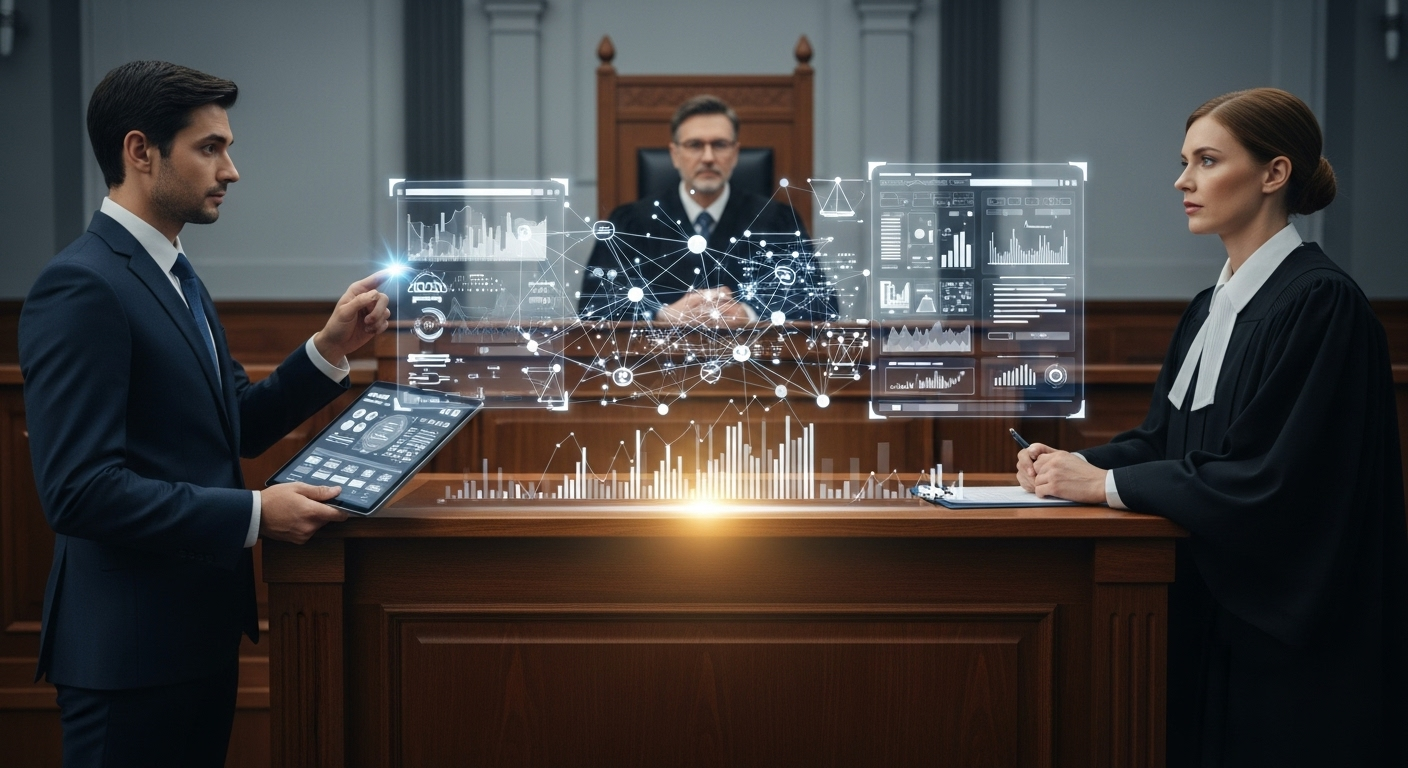The Increasing Influence of Artificial Intelligence on Legal Proceedings
Artificial Intelligence (AI) is revolutionizing numerous sectors globally, with the legal field not being an exception. This article delves into the historical context, recent developments, and potential societal impacts of AI's increasing integration into legal proceedings.

A Look into the Past: AI and Legal Services
The history of AI in legal services dates back to the late 20th century when rudimentary legal research software emerged. These initial AI tools were primarily designed to automate repetitive tasks, such as document review. However, as technology evolved, so did the capabilities of AI in legal services, transitioning from a supportive role to a more active participant in legal decision-making processes.
Recent Developments: AI in Legal Proceedings
In the past decade, AI has grown to play a significant part in legal proceedings. Modern AI tools can analyze large volumes of data, predict legal outcomes, and even draft legal documents. For instance, AI-driven predictive analytics tools are now used to forecast case outcomes based on historical data, aiding lawyers in crafting their litigation strategies. Similarly, AI-powered document drafting tools are streamlining the contract creation process, minimizing the risk of human errors.
New Legislation Surrounding AI in Legal Proceedings
The rise of AI in legal proceedings has prompted governments worldwide to enact new laws and amend existing ones. For example, the European Union’s General Data Protection Regulation (GDPR) has provisions for algorithmic decision-making, including a “right to explanation” for individuals subject to decisions made by AI systems. Such legal updates aim to regulate the use of AI in legal proceedings, ensuring accountability and protection of individual rights.
Implications and Impact on Society
The integration of AI into legal proceedings has profound societal implications. On the positive side, it can enhance efficiency, accuracy, and accessibility of legal services. However, it also raises concerns about job displacement for legal professionals and potential biases in AI decision-making. Balancing these benefits and challenges will be a critical aspect of AI’s future in the legal sector.
The Future of AI in Legal Proceedings
As AI technologies continue to advance, their influence on legal proceedings will undoubtedly increase. Future AI tools may be capable of performing more complex tasks, such as conducting legal arguments or even presiding over cases. However, the ethical, legal, and societal implications of such developments will require careful consideration.
In conclusion, the increasing influence of AI on legal proceedings is a pioneering development in the legal field. Its potential to enhance efficiency and accessibility is significant. However, the challenges it presents, particularly concerning job displacement and potential biases, warrant careful attention. As such, ongoing legislative updates, as well as societal understanding and acceptance of these technological advancements, will be crucial to harnessing AI’s potential in legal proceedings effectively and ethically.






